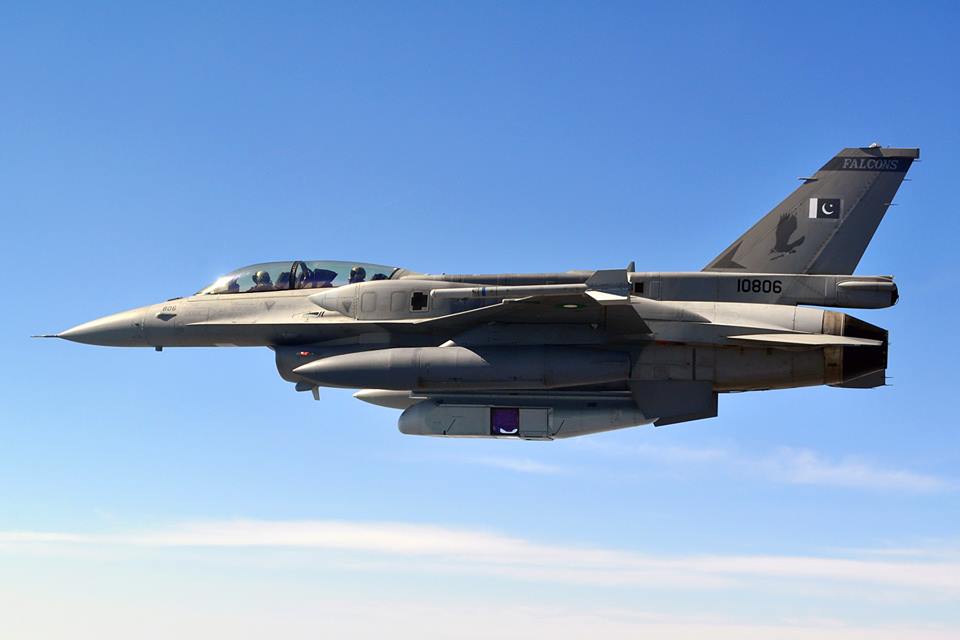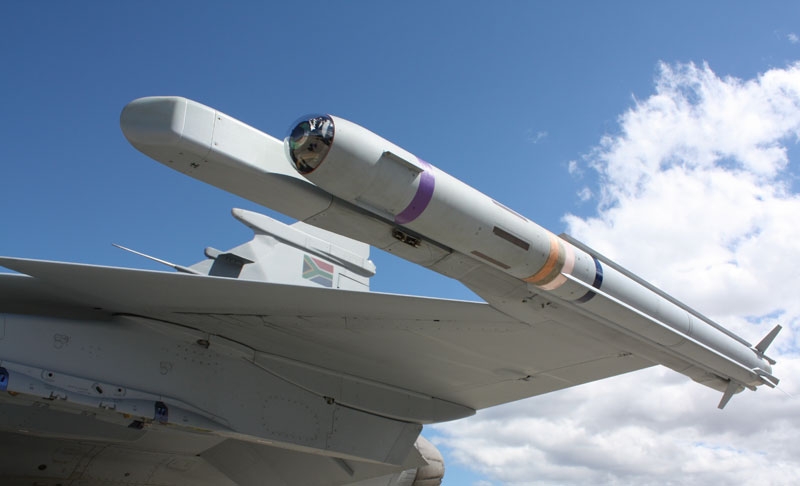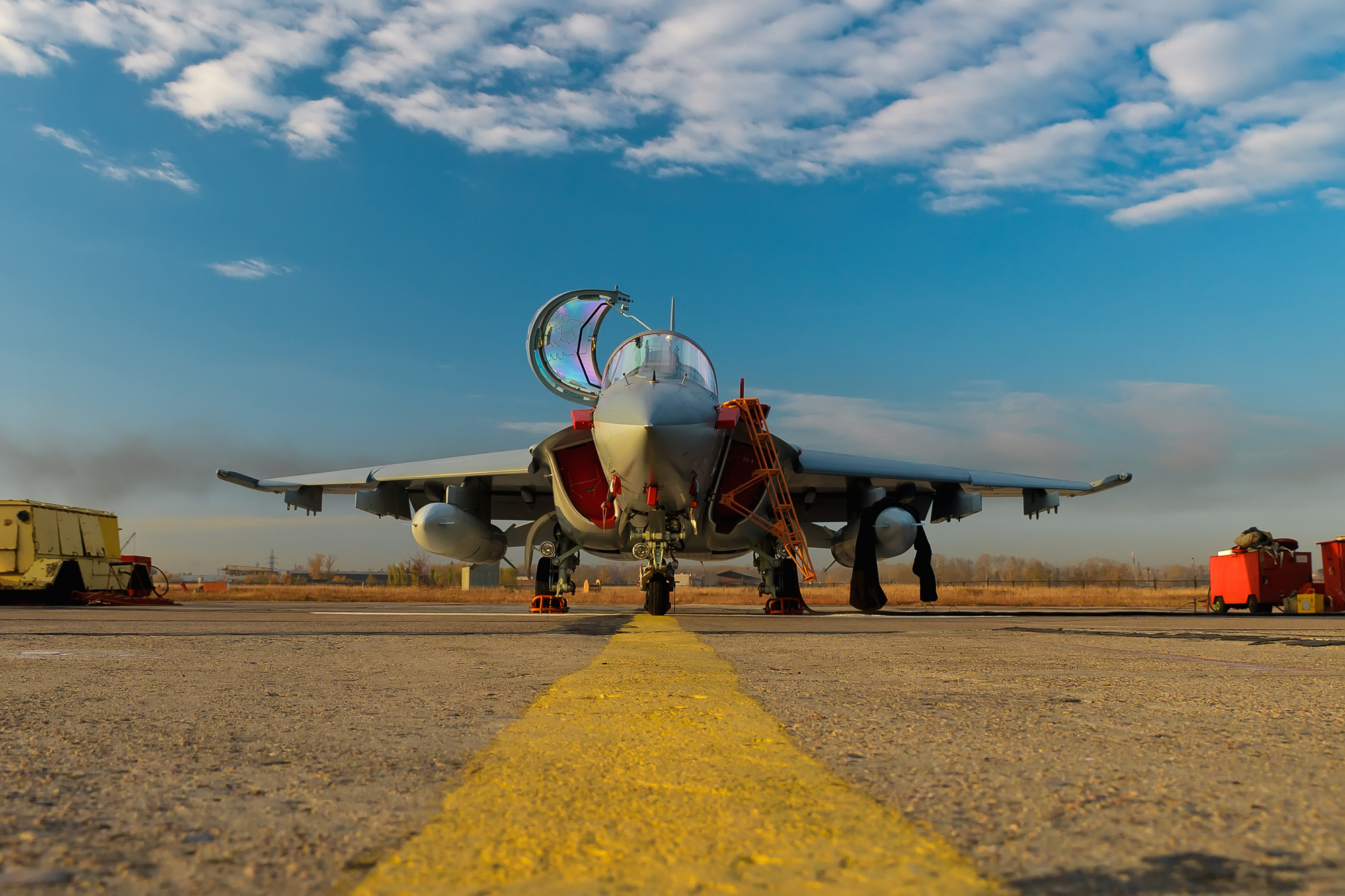2286Views 22Comments

Pakistan’s U.S. ambassador revives hopes for F-16s
Pakistan’s ambassador to the United States Jalil Abbas Jilani expressed his hope that Washington will revive arms sales to Pakistan, most notably of the F-16 (on favourable terms).
Speaking to local journalists and media, Jilani reiterated Pakistan’s commitment to fighting al-Qaeda and ISIS, and advocated for the sale of F-16s and release of Coalition Support Funds (CSF) to support Pakistan’s counterinsurgency (COIN) efforts.
Jilani’s comments come in tandem with U.S. Secretary of Defence-designate James Mattis’ statements at his confirmation hearing, in which he said, “Conditioning our security assistance has a mixed history in the case of Pakistan, but I will review all options if I am confirmed.”
Notes & Comments:
In 2016, the U.S. Department of State approved a USD $700 million sale of 8 Lockheed Martin F-16C/D Block-52+ to Pakistan. However, the sale was contingent on a Foreign Military Financing (FMF) element that would partly subsidize the sale. While Congress approved the sale, it did not greenlight the FMF, thus prompting Islamabad to walk away from the sale. Following that, the U.S. Department of Defence also withheld a USD $300 million CSF package because it could certify Pakistan’s commitment to fighting the so-called Haqqani network in its Federally Administered Tribal Areas (FATA).
Despite these shortfalls, Washington – now firmly led by the Republican Party – is intent on maintaining a measure of productive continuity with its defence relationship with Pakistan.
For example, the 2017 National Defence Authorization Act passed in December 2016 earmarks the transfer of USD $900 million in aid to Pakistan, but less than half of it – i.e. $400 million – is contingent on fighting the Haqqani-network. While the reality could be different, the overt implication is that a portion of the aid (up to $500 million) is not conditional on specific goals, but general alignment.
This would echo a policy recommendation made in September 2016 by Dr. Daniel Markley, the Academic Director at the John Hopkins School of Advanced International Studies, who proposed that aid to Pakistan be divided into three categories: First, aid for supporting dual U.S.-Pakistani interests, such as fighting the Tehreek-e-Taliban Pakistan (TTP). Second, aid aimed at altering the Pakistani military’s methods of COIN engagement, e.g. “reduce civilian casualties.” Third, targeted aid designed to induce Pakistan to fight specific groups, such as the Haqqani Network and Lashkar-e-Taiba.
These instruments could enable Pakistan to procure new-built F-16s and potentially other arms, such as additional AH-1Z Viper attack helicopters, from the U.S.



22 Comments
by mazhar
The withheld $300 Million are part of Coalition Support Funds (CSF), which in fact is the money Pakistan has already spent, US is holding more than1 $Billion of the money we have already spent on this so-called war on terror (our govt don’t talk about it, what a pity) which US should have paid to us no matter what, but we can clearly see a sense of deliberate ignorance. Foreign Military Financing (FMF) is totally different criteria from CFS, it carry huge demands which Pakistan has been fulfilling for a very long time. We have given a lot more to US at the cost of our national interests, a lot more than FMF. Military hardware what we need is readily available across the globe, what we need to do is to plug all holes of corruption where our national recourses are being drained. Pakistan has everything (including very bad governance), just need honesty when it gets to govt spending.
by Shershahsuri
In case there is the chance again to procure F-16, Pakistan must also push for V-Upgrade, Aim 9x and Aim 120D etc.
by SP
Coalition support fund is a way to bribe Pakistan Army generals. The sooner US stops the funds the better.
by Steve
Surely that’s a matter of internal army governance and transparency led by the new COAS, rather than the USA’s fault. Nobody is forced to accept bribes. Are our military leaders also that corrupt? If so they will steal from elsewhere anyway rather than CSF. If that really is the case then why don’t we just give up hope and become an Indian satellite and devolve all our economic, defence, and foreign policy matters to Modi et al. Maybe the country can’t stand as an independent free-thinking nation as it’s people and leaders are inherently deeply stubbornly corrupt. They have no insight that if they drive the country into the ground their and their families’ gravy train will also stop. Maybe they already have apartments in London to run away to, and leave the ordinary public to face disaster. Sorry for the rant; occasionally the state of our country’s governance gets to us.
by Headstrong
‘Steve’, one solution would be to stop obsessing about India, and focus on improving yourselves. India is no utopia, but at least it believes in finding its own solutions rather than constantly looking around for someone to blame, then looking around for a Sugar Daddy.
by Sajid Ehsan
Brother can u kindly explain what is V Upgrade,Aim 9x and Aim 120D. Thanks
by Steve
Look Headstring, you can see our discussions but you are not invited to start a trolling argument. I have no desire to waste time and kill brain cells debating Pakistan’s internal matters with Indians particularly ones whose only agenda is mischief making on a Pakistani forum, possibly as a planned effort. It’s obviously completely inappropriate as India is a longstanding enemy and rival. This is an internal Pakistan matter and emotive arguments are deliberately and calculating used for maximum effect on our brothers to incentivise them to look for and and support solutions to Pakistani problems. So with great respect for Bilal and you kindly mind your own business, and go praise India somewhere else.
by Syed Arbab Shah
Bad move.
by mazhar
F-16-V is $90 Million a piece, Don’t think its worth it.
by Steve
Easier if you read this:
http://www.airforce-technology.com/projects/f-16v-viper-fighting-falcon-multi-role-fighter/
http://www.raytheon.com/capabilities/products/aim-9x/
http://nationalinterest.org/blog/the-buzz/america-close-maxing-out-its-deadly-aim-120-amraam-missile-16223
by OSD
Pakistan is no longer vulnerable to this American pressure and if they continue to stall the F-16 deal, it will spur Pakistan to further upgrade the JF-17. In any case, it is a win-win situation for Pakistan.
by fapple fapple
Although the manner of delivery of Mr.Headstrong’s message may have been slightly provocative, I believe that we all must limit ourselves from making such bold statements about other nations — be them friendly or hostile — without clear evidence sourced from knowledgeable and impartial pieces.
by Rizwan
Thanks for that
by ali amanat
It’s very very bad, still we are begging for f16 , it’s a self cheating ,we are not going to learn a lesson ,surely as long as we are not leaving the American block we will remain begger , there is no r&d 70 years even we don’t hv any kind of maintenance facility of hell I and jet engines .we can do all but no courage and vision only planning and announcement in all fields all forces are without any kind of major future indigenous no us project , sorry to say , but it’s reality,
We can hope , but not optimistic about our leadership as long as the system is not changed ,
America is imposing sanctions against our missile program related companies and our foreign is hoping and giving lolly pop to the nation announcing hope for f16 amazing.
by Shakeel
Thank you brother.
by Rehan
We already have use F-16 for 30+ years we need to Improve Pakistani variant of F-16 which is JF-16. Even after using a platform for that long if US is considering to give this technology to india then, its better off investing on our local resource generation and capability building measures, Chinese Inputs can catalyzed the process.
We seriously need to develop aviation tech in Pakistan by joining the public sector development. New agreement with TOT and training for engineers to start develop. I hope aviation city in kamra is the same thinking.
by mazhar
Good response Steve
by Shershahsuri
Aim 9x is a modern shor range high off bore sight air to air missile which can kill enemy aircraft 90 degree left or right. Aim 120 d is long range air to air missile up to 160 km. v upgrade is an upgradation of avionics particularly an AN APG 83 AESA radar which jamming resistant.
by Headstrong
I believe that this is exactly the problem. Traditionally and verifiably, India has always been the status quo country, while it is Pakistan which is revanchist. This longstanding enemy and rival business is what needs to change. As I have posted on this forum before, consolidation of such a mindset on both sides of the border (but far more deeply and pervasively in Pakistan, I may submit) must be resisted.
This is an article on Pakistan’s wish to source F16s from the US. You have instinctively brought in India in your conversation, and you expect Indians to let it lie? I would argue that, being status quo-ist, India has never begun anything, but when it responds, you people can’t handle it. Why not refrain from starting such stuff in the first place?
by Superior Shakeel
JF-17 doesn’t even have a targeting pod ready yet you are totally clueless about the value of F-16 without that we are defenceless they are our tip of the spear the premier fighter jet which fires one of the world’s most advanced BVRAAM the AIM 120Cs.
You just can’t make a lightweight aircraft with a smoky unreliable engine as good as the F-16 especially when it was kept that way make no mistake JF-17 was always a replacement for old F-7s and mirage fleet nothing more nothing less.
by Steve
Well said brother, I fully agree. Some of our friends get carried away with JF17 and make rhetorical remarks about its capabilities, indigenous R&D and expensive Russian/European fighters. PAF are not stupid and know what’s needed…
by Steve
Bit off topic but in response to fapple; I believe no evidence is needed to declare India an enemy. We are not diplomats so no point in pussy-footing around. I also believe it is really easy to burst the neon-lit ‘status quo power’ balloon Indians and all their paid Pakistan haters keep raising in every possible media outlet. They also promote the falsehood that India is a very ‘mature’ and ‘reasonable’ country. India was not a status quo power in 1947. They forcibly and illegally occupied Hyderabad, Junagarh, Kashmir, Goa, etc. etc. using the army they inherited from the British (and later Siachen). Only after all this aggression and occupation they declared ‘status quo’. Just like a thief who occupies a room in your house and declares that he is reasonable and starts promoting status quo to thwart attempts by the homeowner to evict him. That’s why even their rhetorical statements about AJK have been so muted. Pakistan inherited almost no armouries and their British ‘COAS’ defied the Quaid and refused to counter India in Kashmir. The only men with guns we had were the tribals. Here starts another great propoganda myth against Pakistan. “Oh, Pakistani’s have always used ‘non state actors'” they declare earnestly and falsely, with an eye on securing salaried positions with institutions and organisations who’s job is to churn out publications and think these people are ‘intellectuals’. Luckily we have intelligence and can see though all their tricks and propoganda. Our job is to make sure the world also sees it.